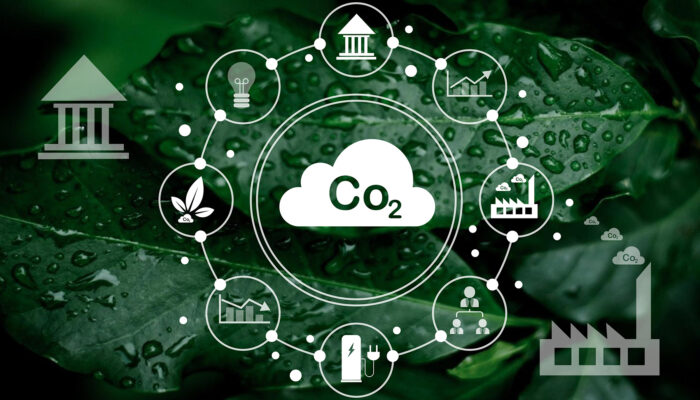Water is essential for our health, well-being, and the global economy. It underpins an astonishing $58 trillion in economic value, equivalent to 60% of the world’s GDP.[1] However, this vital resource faces an unprecedented crisis due to increasing populations and a changing climate.
The UN’s recent warning of a 40% shortfall in freshwater resources by 2030 underscores the urgent need for action. This alarming prediction is compounded by the fact that freshwater comprises only 3.5% of the world’s water, with most of it locked in glaciers and groundwater.[2] Such scarcity is particularly concerning given that water is vital for our daily needs, with households, industries, and agriculture accounting for 11%, 19%, and 70% of global water consumption, respectively.[3] Climate change is also leading to increase instances of extreme weather that are driving increase in floods and other water related risks.
In response to these mounting challenges, we have seen the emergence of a number of digital and watertech solutions aimed at better managing our water resources and mitigating associated risks. These innovations span various aspects of water management, from risk assessment and mitigation to efficient irrigation and advanced monitoring systems.
Managing water risks
Droughts and floods, now more frequent and severe because of climate change, are disrupting local agriculture and depleting freshwater sources, resulting in heightened food insecurity, increased competition for water resources, and significant economic losses for communities dependent on stable water supplies. A recent study in the UK highlighted a 25% increase in flood risks in the UK in best-case climate change scenario.[4] This stark reality has spurred the development of digital solutions to help manage and mitigate these risks.
One notable player is the water risk management sector is York-based Floodbase, which has developed an end-to-end paramedic insurance intelligence platform for governments and insurers. Their solution combines satellite-based observations with hydrological and meteorological data, and ground observations to offer extensive coverage and quick payouts to assist affected communities, even in historically challenging-to-insure areas. The company recently secured a $12 million Series A round in early 2023 and a USAID grant to support the launch of parametric flood insurance programs in Mozambique and Malawi.[5] Another player is Descartes Underwriting, based out of France, the company offering is focused on insuring climate risks including floods.
Revolutionising irrigation
Given that the agricultural industry accounts for roughly 70% of global freshwater consumption, efficient irrigation is crucial for sustainable water management.[6] Traditional methods like flood or surface irrigation often result in excessive waste due to evaporation, runoff, and inefficient application. This reduces the overall effectiveness of water use and impacts crop yields. Innovative irrigation technologies are emerging to reduce water waste and improve crop yields, offering a potential solution to one of the most water-intensive sectors of the global economy.
Greeneye Technology is at the forefront of precision agriculture with its AI-enabled spraying system. This advanced system, powered by AI and cutting-edge hardware, transforms each sprayer into an intelligent machine capable of identifying and targeting weeds, reducing the need for widespread water and herbicide application. In April, the company raised $20 million to scale up its US operations, bringing its total funding to $45 million.[7]
Lumo, on the other hand, is more focused on the optimising irrigation by leveraging real-time weather data and soil moisture sensors to optimise watering schedules and provide greater insight into irrigation performance. By integrating data from local weather forecasts and on-ground sensors, Lumo ensures crops receive the precise amount of water at the right time, thereby reducing water waste and helping farmers avoid over-irrigation, which can lead to soil degradation and reduced crop health. In May, Lumo secured a $7 million funding round from Active Impact Investments and Fall Line Capital.[8] Another innovator, Kilimo, focusing on the LATAM and US markets, tackles the irrigation challenge from a data-driven angle. Its AI-powered irrigation management solution provides farmers recommendations based on a comprehensive analysis of crop water needs, soil conditions, and local climate data.
Africa has also seen its own watertech champion, with SunCulture providing irrigation products powered by off-grid solar power technology to smallholder farmers. The company’s products are estimated to increase yields by 5x, which is a crucial value-add given that climate change is expected to decrease farmers’ yields by 10% – 20%. This yield increase, combined with efficient water use and clean energy-powered irrigation, positions the company’s solution as increasingly important in the face of climate challenges. The company has recently raised $27.5m from the founder of Netflix (Reed Hastings) and the ex-Google CEO’s Eric Schmidt family foundation among others.
These innovative solutions have shown promising results, with potential water savings of up to 30-50% compared to traditional irrigation methods. As water scarcity becomes an increasingly pressing issue in many agricultural regions, these technologies offer a path towards more sustainable and efficient water use in farming.
Advanced monitoring systems
Accurate and timely data on water quality, availability, and usage are essential for effective water management. This information enables governments, businesses and individuals to make informed decisions, optimise resource allocation, implement conservation strategies, and address potential issues before they become critical. By leveraging precise data, communities and industries can ensure sustainable water usage, improve resilience to water-related challenges, and support environmental preservation efforts. Several companies are developing advanced monitoring systems to meet this need, leveraging cutting-edge technologies to provide unprecedented insights into water systems.
SewerAI is pioneering the use of AI and computer vision in sewer system maintenance. Their technology allows for automated inspection of sewer pipes, detecting issues such as cracks, blockages, or infiltration before they escalate into major problems. This helps engineers, contractors, and utilities increase productivity and effectiveness while reducing the cost of maintaining and renewing ageing sewerage systems. SewerAI recently secured a $15 million Series B funding round.[9]
Geneva-based, bNovate Technologies, provides fast microbiology testing solutions for the water industry. Unlike the traditional plating testing method, which requires several days to incubate in a laboratory, bNovate’s BactoSense Flow Cytometer solution is mobile and designed for industrial environments. It can count microbial cells in water within 20 minutes, allowing for online monitoring and continuous surveillance. Additionally, it provides immediate warnings in case of contamination. The company recently completed a $13.5 million (12m CHF) Series C investment round, led by Emerald Technology Ventures, in June of last year.[10]
Flume Water has created a smart home water monitoring and leak detection solution. It measures the magnetic field from water metres, tracking water usage to the nearest hundredth of a gallon and providing detailed insights into individual appliances. The system also detects leaks and alerts homeowners, helping to prevent costly damage and excessive water loss. In mid-2023, the company received an undisclosed investment from HCAP Partners, a California-based private equity firm.[11]
Watertech – A growing market opportunity
The overall watertech start-up ecosystem is valued at over $25 billion, with 75% of this value coming from companies founded since 2010, suggesting a dynamic and innovative sector.[12]
The urgency of the water crisis is likely to drive further investment and innovation in the coming years. With freshwater demand projected to surpass supply by 40% by 2030, there is a clear and growing need for innovative water solutions. This gap between supply and demand represents a substantial market opportunity for companies that can develop effective technologies to address water scarcity, improve water quality, or enhance water use efficiency.
On the back of this increased need, the watertech sector is poised for robust growth. With water ecosystems contributing an estimated $58 trillion in economic value and underpinning crucial industries such as agriculture, manufacturing, and energy, the sector’s importance cannot be overstated. Watertech companies secured $1.2 billion in 2023, a figure 105% above 2019 pre-pandemic levels. This resilience indicates robust and growing interest in the sector.
We are also beginning to witness the emergence of sizable watertech players. DuPont has spun out its $1.5 billion watertech business, highlighting that the water division will pursue its own M&A strategy.[13] Similarly, Danaher has separated out its water division with a $2.1 billion IPO.[14] The rise of these large water tech players will undoubtedly drive M&A within the sector. We are already seeing activity at the top end of the market with technology group Xylem’s completion of its £7.5 billion acquisition of Evoqua in May 2024 [15]
Looking ahead, we anticipate continued growth and innovation in this sector. As climate change renders our relationship with water increasingly complex, we expect to see a surge in transactions, including heightened fundraising efforts and M&A activity.
Learn more about us.
View our transactions.










